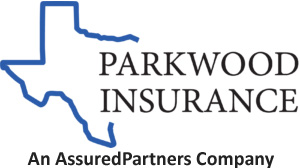You know that protecting your home is important. It’s the epicenter of your family’s life and probably the most valuable asset you own, so your homeowners insurance premium is money well spent.
But you can still be smart about how you spend that money! It’s always worthwhile to look at ways you can reduce your insurance premiums and make sure you’re not paying more than you have to.
Here are our top 9 ways you can lower your home insurance premium, while keeping the benefits of a comprehensive insurance policy that protects your home and its contents.
1. Raise Your Deductible
If you’ve ever owned a car or a home, then you already know how a deductible works: when you have to make a claim, the deductible is the amount you pay before the insurance kicks in. And the higher your deductible, the less you pay for your insurance policy.
Choosing insurance is always a balancing act between the deductible and the premium. To decide how high your deductible should be, look at your savings and emergency fund. Specifically, an emergency fund should be able to cover 3 to 6 months of expenses and all your insurance deductibles – that way, even if five disasters hit at once, you’ll be able to put the pieces back together.
Therefore, you shouldn’t make your deductible higher than you can actually pay. If a tornado rips through your neighborhood, a comprehensive homeowners insurance policy won’t do you any good unless you can pay the deductible and begin receiving benefits.
But if you have enough liquid funds, go ahead and talk to your insurance agent about raising your deductible. It can save you significant money on your annual premiums each and every year.
(Note that sometimes, your mortgage company can get in the way. Some mortgage companies have restrictions on how high you can raise your deductible, so if you have a mortgage, check with them to see what their limits are.)
2. Keep Your Claims Record Clean
Thinking about making a claim? Just like with car insurance, there are times when you are better off paying for repairs out of your own pocket.
The rule of thumb is this: insurance is for big losses, not small ones.
If you have a kitchen fire that causes major damage, you should file a claim. But when it’s something small – for example, if your lawnmower throws a rock and breaks a window – it may be better to pay for it out of pocket.
Generally, it is best to avoid filing a claim when:
- The repairs cost less than your deductible
- Damages are relatively minor
- You’ve filed more than one claim in the past 5 years, which can significantly affect your rates
Of course, you can file a home insurance claim whenever you want! Just be aware that filing a claim – or even reporting damage without pursuing the claim – can trigger premium increases. If you fall into the trap of thinking “I paid for this insurance so I’m going to use it,” that attitude will likely cost you more money in the long run.
It’s also worth remembering that the longer you don’t make a claim, the more likely your premium stays low. And if you go several years without making a claim, you may qualify for a claims free discount!
If you’re not sure whether to make a claim, check with your agent. An independent insurance agent works for you, not for any particular insurance company, so they’ll be able to advise you on interpreting policy language, identifying damage covered under your policy, and assessing whether or not it’s worth making a claim.
3. Bundle Your Policies
What about your SUV, your high schooler’s Prius, or the boat in the driveway? If you’re not buying homeowners insurance and your auto insurance from the same company, then you’re most likely paying too much for both!
You’ve probably seen commercials urging you to bundle insurance policies. That’s because it’s a win-win: the insurance company gets more business, and you may save up to 10% or more on your insurance premiums. A trusted insurance agent can help you compare all the bundling options to find the right package for you and your family.
4. Newer Home, Lower Cost
If you just bought a new home, or you’re thinking of buying one, then you’re in luck!
Insurance companies offer discounts on homeowners insurance from as much as 8% to 15% on new homes. That’s because there’s less likelihood of something going wrong with a newer home – which is why they’re so attractive to insurers!
5. Location Matters
When deciding where to live, you probably considered what school district you wanted to be in, how close the nearest shops and restaurants were, and how long your commute to work will be.
It’s unlikely you gave much thought to how near the local fire station is. But your insurance company does! Where you live impacts the cost of your home insurance policy more than you might expect.
Everything else being equal, choose to live:
- Near a fire station
- In an area with fire hydrants
- In an area that’s not prone to flooding
Note that homeowners policies typically do not include flood insurance. If you do happen to live a flooding-prone area, your mortgage lender may require you to purchase a separate flood insurance policy. This is not usually an issue in North Texas, but homeowners in Houston and along the Gulf Coast should definitely look into it!
6. Insure Your House, Not Your Land
Don’t make the mistake of thinking you need to insure the house, the land, and everything in between. This is just not necessary and will end up costing you a lot of money for very little value.
The truth is, nobody is going to steal the land your home is on. High winds, flood and fire won’t “destroy” it or impact its value. For this reason, you do not need to factor in the value of your land when determining the value of your home for insurance purposes. It’s just not worth it!
Instead, make sure your insurance will cover the cost of rebuilding your home (which can be more than your home’s current market value) and any other structures on your property. Your land is going to be just fine.
7. Safety Saves You Money
Sometimes playing it safe does pay off!
Deadbolts, smoke detectors, and burglar alarms are usually worth discounts of at least 5% when it comes to your homeowner’s insurance policy. And if you install a sophisticated sprinkler system or an alarm system that rings the police or a security company, you could be looking at a savings of up to an additional 10%.
Safety precautions like these are worth having in general, as they help protect you, your home and its contents, and your loved ones.
If you’re installing any of these upgrades solely for insurance savings, be sure to check which systems qualify for discounts with your insurer and how much you will save. Do the calculations to make sure your investment will pay off in terms of money saved on your premium, and ask your agent if you have any questions.
8. Good Credit Can Get You Lower Rates
Did you know that most companies today use your credit history to determine a pricing structure for your homeowner’s insurance? That means a good credit score will get you a lower price on your policy.
Maintaining good credit is an article all by itself, so we’ll just cover the basics here:
- Check your credit report before speaking with an agent, so you know your score and won’t get any unpleasant surprises.
- Check for any errors on your report and fix them as soon as you can.
- And of course, it’s always a good idea to pay bills on time, pay down debt, and follow all the other best practices that keep your credit score health and save you money in the long run.
9. Shop Around For Your Policy
All insurance companies are not created equal!
Do your homework and shop around to make sure you’re getting a good deal. Since each company evaluates risk differently, you should get a range of quotes to choose from – although you’ll need to make sure you’re comparing “like with like” regarding what is and isn’t covered in the policies.
It’s also worth looking at the companies’ loyalty programs and special benefits or discounts. For example, you don’t want to spend money on a home security system that gets you a discount with one company, and then switch to a “cheaper” provider who doesn’t offer that discount.
If all this sounds like a big hassle, that’s what we’re here for!
As an independent insurance agent, we do the shopping around for you. We know that trying to understand and find the best policy can be confusing. What works for your neighbors may not fully protect your home in the way you need it to! And let’s not forget about the cost of your time in waiting on hold and comparing multiple quotes!
It would be great if you could use all 9 of these homeowners insurance tips. But even if you just implement a few, you should be able to save money while keeping the coverage you need. And if you have any questions, please give us a call! We’d love to help you find the perfect coverage for your needs.
Parkwood Insurance has been serving Frisco since 1998. We offer personal and commercial insurance to customers throughout the great state of Texas, specializing in auto, home, commercial and life insurance.




